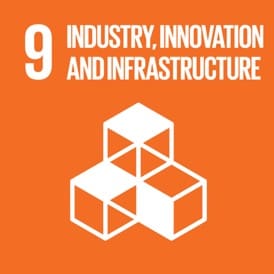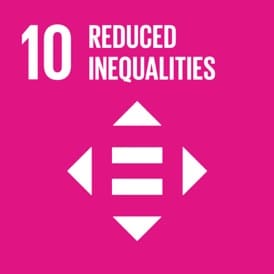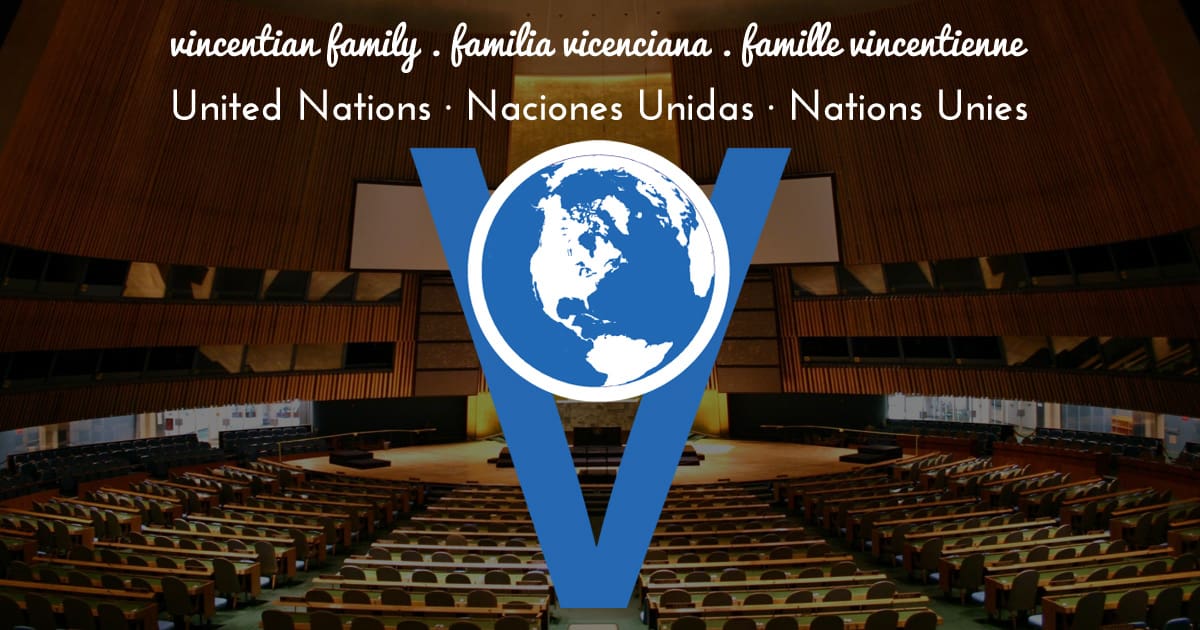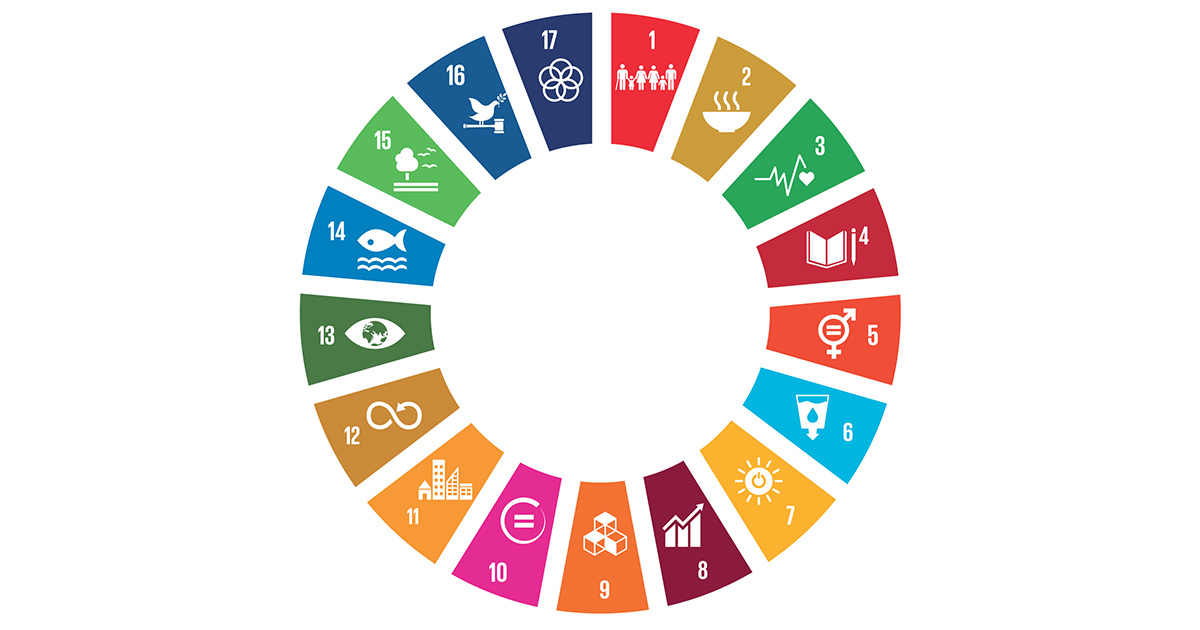Sustainable Development Goals, 9 and 10
SDG9: Industry, Innovation and Infrastructure
 Our national infrastructure holds us together. It’s not something we think about very often but it is essential.
Our national infrastructure holds us together. It’s not something we think about very often but it is essential.
Transportation is a good example. In St. Vincent’s time most people lived and died within only five miles or so of their birthplace. Hard to imagine! Humankind is on the move, life means mobility, and development around the world demands systems that provide not just for personal travel but the movement of goods and resources. In fact, decent infrastructure separates the developed and developing worlds.
The same can be said for our buildings, bridges, vehicles and all related items. But did you know that manufacturing growth, in general and not just e.g. in the USA, has been on a steady decline even before COVID? Resources and supply chains are too often disrupted by new obstacles. Our growing global interconnectedness means that if one country slows down, so do others. Inter-connected means inter-dependent. No country today can consider itself fully independent.
As Systemic Change thinking reminds us: everything is connected, nothing happens in isolation.
So we depend on healthy systems and creative minds to resolve issues and foster development. Throughout COVID, we’ve used technology as our lifeline, and we soon learned that our communication infrastructure is essential. Whether we were facetiming with our families in Rome or reading news about China, many of us were connected online, maintaining relationships at least virtually, and working effectively in a new way. Although much of the world is covered by at least a 2G network, far too many around the world do not enjoy the instruments nor the technical literacy to benefit from modern communication infrastructure.
Some industries were not as resilient. Specifically, many small-scale industries were hit hard by the pandemic. We probably all know at least one or two independent shops that had to shut down due to the pandemic. These independent shops are important to our global societies. As the war against monopolistic corporations continues throughout the US and other parts of the world, small businesses are vital in helping to promote inclusive and sustainable industrialization and foster innovation.
As the UN reminds us, “Economic growth, social development and climate action are heavily dependent on investments in infrastructure, sustainable industrial development and technological global manufacturing” which in turn create new employment and income alternatives.
So SDG #9 asks nations to improve access to reliable and affordable broadband/high-speed internet, and accelerate widespread and equitable adoption of electric vehicles. To invest in infrastructure, research and development, to promote inclusive and sustainable industrialization and foster innovation.
As consumers, we have a role to play. We can use our own purchasing power as ‘dollar votes’ for a world we want to live in. If we show businesses that we want sustainability, we can research first in order to give our money to truly sustainable companies, and to support industries whose goals align with our own. We have the power. We should use it wisely.
One small but indicative example: a website particularly helpful in buying clothes sustainably by rating brands in several categories: https://directory.goodonyou.eco/?_ga=2.263115849.417480627.1619734137-191032380.1619734137. And modest research we can easily do on our own will put us in touch with other ways to find resources and companies worth supporting.
SDG10: Reduced Inequalities
 SDG #9 above is quite technical and not an area we usually focus on, but this # 10 speaks directly to our Vincentian hearts! Our charism to share the Gospel with, and serve, especially people living in poverty, inspires us to work to reduce unjust inequalities.
SDG #9 above is quite technical and not an area we usually focus on, but this # 10 speaks directly to our Vincentian hearts! Our charism to share the Gospel with, and serve, especially people living in poverty, inspires us to work to reduce unjust inequalities.
We are all very different, with different needs and wants, but one thing we can agree on is that no one wants to be left behind. The truth is, however, many people around the world are left behind each day in different ways. Many are silenced, exploited, and left out of important global decisions. The powers that be, the decision-makers, do not ask those living in devastating poverty and constant vulnerability what they need and want, or how to supply it. Increasingly at the UN, the mantra has become “do not talk about us (poor people) without us.”
Exploitation and suffering thrive in situations of inequality. And now we see the need to reduce inequalities loud and clear through the vaccine crisis. Many countries, typically the poorest and most vulnerable, have been unable to secure vaccines, while others mismanage some supplies and will not share the patent necessary for their production.
Aside from inequalities that exist between countries before and during COVID, when it comes to health, security, social protection, and the economy, women of all nationalities have been most impacted by COVID due to their sex. Unemployment puts at risk the progress made towards gender equality and women’s rights. When schools open one or two days a week, this week but not next, in haphazard fashion, mothers, typically the family care-givers, cannot be expected to keep steady employment.
Likewise, the special needs of older persons, persons with disabilities, children, migrants and refugees, and indigenous peoples must be considered as we rebuild our global communities. It is important that we center the voices of those who are most affected by systemic faults. It is important that we vote for legislators who consider the special needs of disenfranchised groups. It is important that we listen to those suffering, and do our best to understand the needs of those who surround us. It is important that all of us speak out against hate speech, which has risen sharply during the pandemic, and create inclusive and safe spaces for all people.
Inequalities based on income, sex, age, disability, sexual orientation, race, class, ethnicity, religion and opportunity must be considered in every decision that we make. It is our responsibility to use our growing global connections for transformative change. We must invest in health, education, social protection and decent jobs. We must eliminate discriminatory laws. If we want to move forward, to “build forward together,” we need to focus on not leaving anyone behind.
SDG #10 asks nations to adopt fiscal and social policies that promote equality, and improved regulation of global financial markets and institutions. To make decisions based on solidarity and the common good. “Leave no one behind” has become a moral imperative and a critical measure of successful development.
Jim Claffey
NGO representative of the CM to the UN
www.Congregationofthemission-un-ngo.com
Twitter: @cmunnyc
Facebook: congregation of the mission un










0 Comments